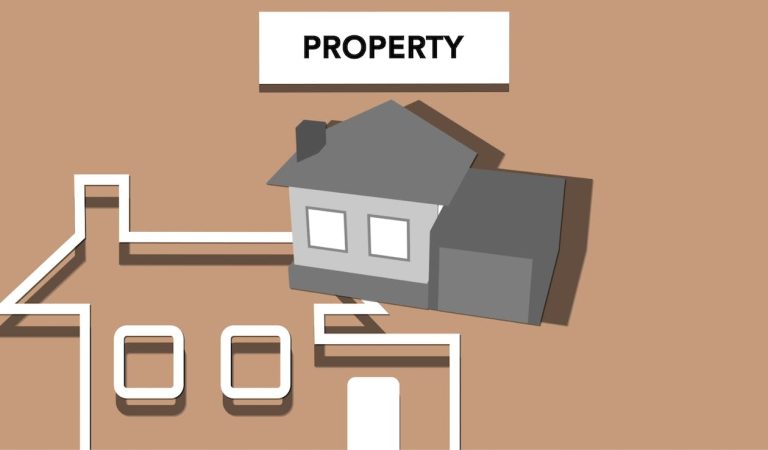15 Home Insurance Claim Adjuster Secret Tactics
Home insurance claim adjuster secret tactics: Many people buy home insurance to ease their money worries. You cross your fingers that you’ll never need to make a big claim, but if you do, you want the process to be smooth.
The issue is that, no matter how friendly they appear, the adjuster isn’t on your side. Their task is to minimize payouts, and they’ve got a couple of secrets up their sleeve that they won’t spill.
15 Home Insurance Claim Adjuster Secret Tactics
When filing a home insurance claim, there are some secrets that adjusters would rather keep away from you. They are called home insurance claim adjuster secret tactics. The purpose of home insurance claim adjuster secret tactics is to reduce the amount that the insurer will pay you. This will help them save money for the company. These tactics include:
1. Delay tactics to frustrate you
The delay tactic is the number one home insurance claim adjuster secret tactics. Home insurance claims often drag on, even seemingly simple ones, and can stretch for weeks or more.
Adjusters play the waiting game, counting on your impatience to push for a quick settlement. Stay savvy and don’t fall into that trap.
Resist the urge to settle for a low offer just to speed up the claims process and get a check in your hands. Patience can pay off. Rather than settle, keep things moving by staying on their radar with regular requests for updates. Keep the pressure on.
2. They want you to be at fault
In certain home insurance claims, fault plays a significant role, potentially reducing their payout responsibility. Beware; insurance companies may try to prompt you to say, “I’m sorry. It’s my fault,” but think twice before admitting fault, as it could impact your claim.
If you admit that you are at fault, then you might not receive any compensation for the loss. Stick to the facts when dealing with the insurance company. Avoid speculating about what “could have happened” and focus on providing concrete information.
Expect questions aimed at shifting blame, but stay consistent with your story. Remember, they’re not your friend and don’t care about you; their goal is not to comfort you but to manage the claim.
3. Recording your statement might not work in your favor
Beware of this tactic: they might ask you to record your statement, making it hard to backtrack later. This is a move they pull if they sense you might admit fault to some extent. Stay vigilant.
When asked for a recorded statement, stick to the facts. Understand its purpose and inquire about its use. If possible, opt for a written statement to ensure clarity and precision in your account.
Smart move: record yourself while providing the statement. This prevents any selective editing that could make you appear guilty. Cover your bases.
4. There is no reason to share your medical history
Even in a home insurance claim, they might request your medical records for validation. Stay cautious about what you share and ensure it’s relevant to your home-related claim.
Don’t be swayed. Requesting medical records can be unnecessary and may encroach on your privacy. Stand firm if you choose not to provide them.
Usually, there’s no valid reason for them to access your medical records. A statement from your doctor and relevant medical bills should be enough for their documentation needs in a home insurance claim.
5. You must not agree to the first offer
When an adjuster presents an offer but pressures you to agree quickly, be cautious. Don’t feel rushed; take the time to review and consider the terms. The offer shouldn’t vanish if you need a bit more time for a thoughtful decision.
Please don’t fall for the trick of a fake deadline. It’s designed to pressure you into a hasty decision, potentially limiting your compensation. Take the time you need to make an informed choice.
Recognize the tactic: the deadline is about taking advantage of your bill concerns to rush the process since they know that there are bills you need to pay. Stand firm, and don’t settle for less than what you rightfully deserve.
6. The first offer doesn’t come close to covering your losses
It’s pretty common for your initial offer to be just a starting point with the insurance company, not necessarily the final amount they could end up paying you.
They know you’re in need of money as soon as possible, so they might throw a lowball offer your way. Just a heads up; it’s best not to jump on it.
If you’ve got solid evidence of your losses and can prove the financial loss you took, there’s really no valid reason for them not to pay the full amount – unless it somehow exceeds your policy limits.
7. They tactically deny your claims
For instance, if your house catches fire because of a lightning strike, it’s pretty clear that your insurer should step in to cover the losses.
The tricky part is that they might initially deny responsibility, throwing in reasons why it’s not on them. It’s a common tactic to try to get you to admit some fault, so be cautious.
If they deny or give you any uncertainty, don’t let it get to you. Stay focused on detailing your losses, and make it crystal clear that your policy should cover them.
8. Requesting for tax documents is a delay tactics
Similar to requests for medical records, some insurance adjusters might ask for documents like tax returns or other proof of your earnings.
It’s often unnecessary and just a delay tactic—asking for extra documentation like tax returns can be part of that game.
If they’re pushing for unnecessary information, ask them why they need it. Know your rights, and if there’s no valid reason for them to have that info, make it clear that you’re not obligated to provide it.
9. They tell you that there’s a loophole limiting your claim
It can be seriously frustrating – suddenly, the adjuster brings up a supposed loophole or clause in your policy, claiming it limits their responsibility for covering your claim.
Often, they won’t elaborate much beyond that, and truth be told, it’s a lie in many cases. Keep your guard up.
Ask for specific details about this supposed clause, and take the time to read through it. Check to see if it genuinely applies to your situation. If they’re outright denying your claim, let them know you’ll be having your lawyer review it before proceeding.
10. They try to downplay the level of your losses
A home claims adjuster’s goal is often to pay less, and one tactic they use is downplaying the extent of your losses. Stay vigilant.
They might claim you’re exaggerating the losses, insisting that the situation isn’t as bad as you believe. This tactic can also be used when filing a premises liability claim, especially if you’ve been injured at someone’s house.
Stick to your documentation – you’re aware of the losses you’ve faced. Don’t fall for this tactic; it’s often just a strategy to reduce what they’re willing to pay.
11. They will use builder-grade replacement materials
For instance, if your home requires extensive repairs post-fire, but the insurance company disputes the contractor’s valuation of certain materials, it can lead to complications in the claims process.
Rather than using the original-quality materials in your home, the insurance company might aim for builder-grade materials, which are often of lower quality. However, they are typically obligated to restore your home to its pre-incident state, including using materials of the same grade.
Having evidence of the materials used and presenting receipts or values, when available, is crucial. Your contractor can play a key role in helping you verify and defend against this tactic by the insurance company.
12. They’ll tell you that you don’t need a lawyer
They might discourage you from hiring an attorney, claiming it’ll increase costs, reduce your payout, and slow down the process. However, having legal support can often be crucial in navigating these situations.
If they advise against hiring an attorney, there’s likely a reason from their perspective. However, it’s essential to know that you have the right to engage an attorney or a public adjuster if your home insurance provider isn’t offering what you need and deserve.
If they’re unwilling to collaborate, seeking help is a smart move. It could be an indication that they’re not being entirely honest or transparent.
13. They might use wear-and-tear as an excuse
Insurance adjusters may claim they can’t cover the full extent of the damage, citing wear-and-tear or existing structural issues as reasons for limited payment.
Carefully review your policy terms. If they’re responsible for the loss, chances are they’re obligated to restore it to its original condition. Be prepared to advocate for the coverage you deserve; it might require some persistence.
14. They’ll be nice to you on purpose
Some top-notch insurance adjusters are really friendly; they inquire about your family, ensure you’re okay, and may even share personal stories to build a connection.
Building a friendly rapport is a tactic to lower your guard. The trust they establish might lead you to agree to less than what you’re actually owed. Stay vigilant, even if the adjuster seems exceptionally friendly.
It’s important to remember that, despite their friendliness, their main goal is still to manage the claim within the company’s interests.
15. They will tell you that you can’t negotiate
Claiming their offer is a one-time deal, they might pressure you to accept it or walk away.
Feeling anxious, you might hastily accept it, know that it’s only a fraction of what you truly need. They might assert that there’s no room for negotiation, but it’s crucial to pause, assess, and consider seeking advice before making a final decision.
Often, the initial offer is a lowball one, falling short of covering all the necessary expenses and usually lacking sufficient coverage in key areas needed for your home repairs.
Conclusion: Home Insurance Claim Adjuster Secret Tactics
No doubt about it, insurance claims adjusters aren’t your allies. Their primary goal, and what they’re compensated for, is to minimize payouts, ultimately saving money for the insurance company. Stay aware of this underlying objective.
It’s a common tactic for insurers to transfer you from one adjuster to another, a process that often consumes more time and intensifies your frustration.
Steer clear of making hasty mistakes, and ensure you consistently stick to the same factual story. Press for answers and seek resolutions whenever you can. If issues persist, reaching out to your insurance attorney for assistance is a prudent step.






